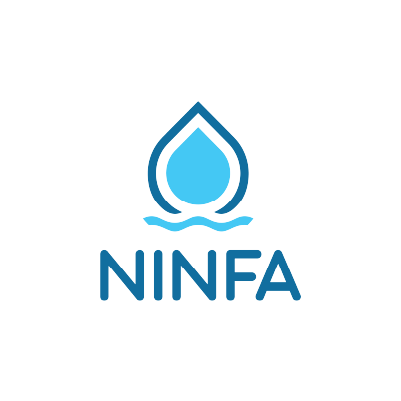The collaborative effort created by 7 projects
Each project includes a set of case studies at different locations and focuses on specific challenges related to drinking water or groundwater management.
The ZP4WC will work to relate them to foster new cross-cutting knowledge across America, Europe and Africa.
Innovative tools to control organic matter and disinfection byproducts in drinking water.
The intoDBP project, funded by the EU, focuses on disinfection by-products (DBPs) formed during water chlorination. It develops innovative tools for water quality management, emphasizing cost-effective sensors and analytical methods. intoDBP aims to understand DBP precursors, address pollution and risks, and promote sustainable consumer behavior. The project engages society through surveys, contributes to climate change adaptation, and enhances water treatment.
Understanding groundwater Pollution to protect and enhance WATERquality.
The UPWATER project addresses the widespread issue of groundwater pollution by identifying effective regulatory and legislative preventive measures and by developing cost-efficient methods to measure pollutants, identify their sources and to mitigate the pollution. UPWATER focuses on the validation of these methods in three case studies in different EU climates and aims to develop hydrogeological models for decision-making scenarios, considering multiple stressors and climate change projections. Expected outcomes include the adoption of preventive measures, scaled-up bio-based solutions and updated chemical priority lists.
TOolkit for aDaptable, Resilient INstallations securing high Quality drinking water
The ToDrinQ project addresses the impact of climate change and increased pollution on drinking water quality. The project aims to develop real-time water quality monitoring technologies and innovative treatment systems, along with interoperable decision tools. These efforts support evidence-based treatment plant design and enhance operational awareness and response in the overall water system.
Innovative Integrated Tools and Technologies to Protect and Treat Drinking Water from Disinfection Byproducts (DBPs)
The H2OforAll project focuses on disinfection by-products (DBPs) that result from the interaction of disinfectants like chlorine with natural organic materials in water. It aims to develop cost-effective DBP sensor monitoring devices, model contaminant spread, study toxicity and environmental impact, and propose safeguarding measures for the drinking water chain. The project also works on innovative water treatment methods to remove or prevent DBPs, and it aims to create a central knowledge base with reliable data on DBPs in Europe and their effects.
Preventing groundwater contamination related to global and climate change through a holistic approach on managed aquifer recharge
MAR2PROTECT project confronts groundwater contamination resulting from climate change and global changes, with a focus on sustainable water management to meet zero pollution goals by 2030. It employs an innovative managed aquifer recharge (MAR) approach, utilizing the M-AI-R Decision Support System (DSS) that incorporates artificial intelligence (AI) to assess and enhance groundwater quality and quantity..
Climate-resilient management for safe disinfected and non-disinfected water supply systems
SafeCREW project addresses the challenge of supplying safe drinking water in the face of climate change. It aims to develop new methods for monitoring, treatment, and risk assessment, particularly in disinfection and organic substance removal, safeguarding water quality
TakiNg actIoN to prevent and mitigate pollution oF groundwAter bodies)
NINFA project confronts groundwater pollution by developing an early-warning decision support system and knowledge database, the NINFA Platform. This innovation enhances groundwater management by expanding knowledge on water flows and the behavior of emerging contaminants like pharmaceuticals and microplastics, safeguarding this vital resource.
New projects guidelines to join will be hung here!
Do you run a project related to water pollution?
Stay tuned as soon instructions to join the ZP4WC will be deployed here!
Case studies

A total of 31 case studies will be analysed being 13 dedicated to drinking water ![]() and 18 to groundwater
and 18 to groundwater![]() .
.







